The British Ecological Society announced today that University of California, Irvine ecologist and biogeochemist Kathleen Treseder has won the organization’s Marsh Award for Climate Change Research.
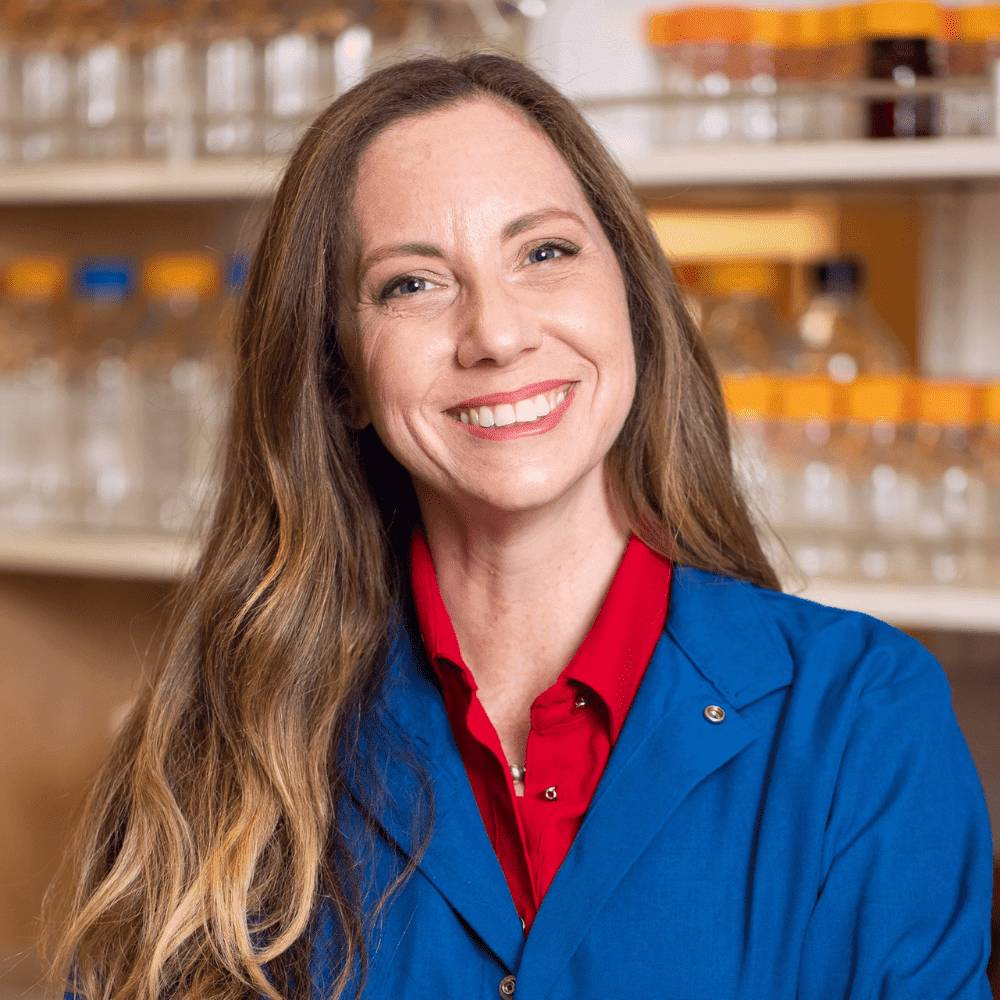

Sep 1, 2022
The British Ecological Society announced today that University of California, Irvine ecologist and biogeochemist Kathleen Treseder has won the organization’s Marsh Award for Climate Change Research.

Aug 23, 2022
Now University of California, Irvine biologists offer new insights into these entities known as transposons, providing knowledge that could one day help in the fight against cancers and aging-related diseases.

Jan 27, 2022
Steven Allison, professor of Ecology in the Department of Ecology and Evolutionary Biology and Director of the Newkirk Center for Science and Society, has been named a Fellow of the American Association for the Advancement of Science (AAAS). Each new inductee to AAAS...

Jan 6, 2022
Alternative viral detection methods have been critical in the fight against COVID-19, helping to reduce the burden on our healthcare system. In a new study published in Applied and Environmental Microbiology, University of California, Irvine researchers demonstrate...

Nov 16, 2021
Experts from UCI and the University of Michigan will collaborate to generate a comprehensive skin cell atlas to help explain ancestral differences in skin biology and pathology as part of the worldwide Human Cell Atlas project.
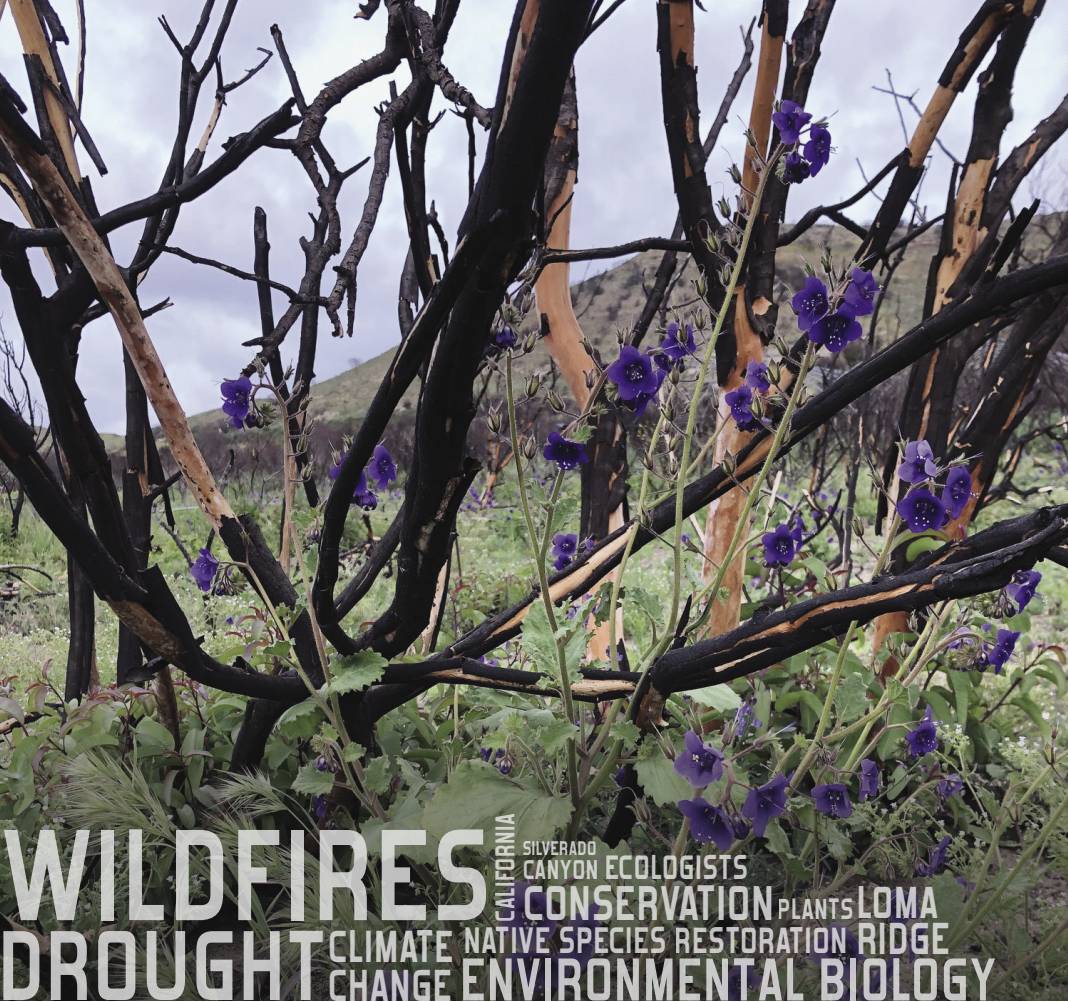
Nov 15, 2021
Fires commanded headlines and wreaked destruction across California in
2020. Flames devastated the Silverado Canyon area of Orange County,
where multiple UCI scientists were conducting research. But from the ashes,
UC Irvine Charlie Dunlop School of Biological Sciences experts are already developing vital new
lines of inquiry into land conservation, climate change and more. According
to the California Department of Forestry and Fire Protection, more than
9,900 !res ravaged over 4.2 million acres of California land in 2020.
Dunlop School is home to the Center of Environmental Biology (CEB). Its worldrenowned faculty tackle questions across disciplines, including genomics,
comparative physiology, microbiology and climate change. Dunlop School scientists
have partnered with local institutions such as the Irvine Ranch Conservancy
to conduct conservation and restoration efforts throughout the county,
including Loma Ridge and Bee Canyon.
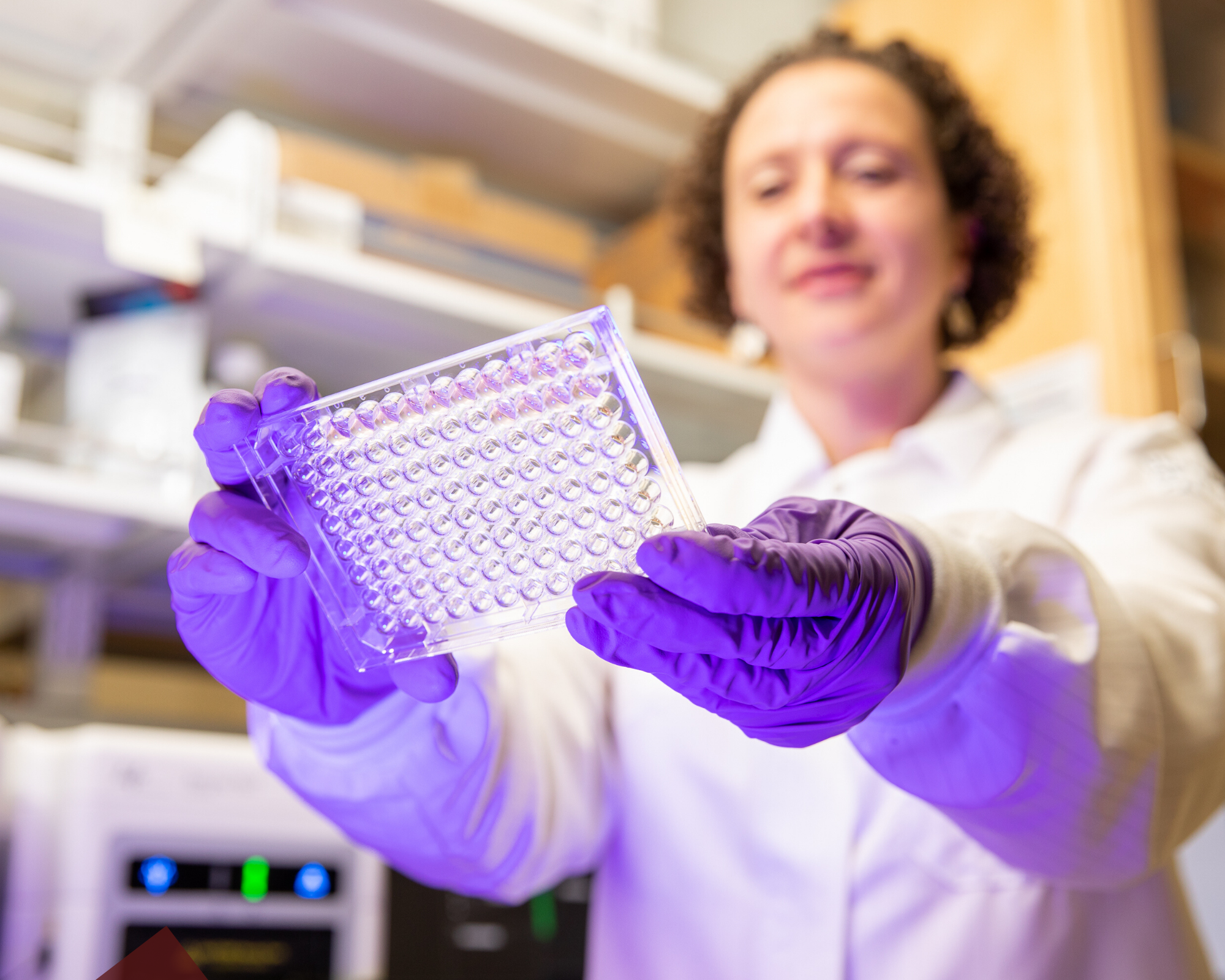
Nov 15, 2021
The year 2020 will be ingrained in the American psyche for decades to come. The emergence of
the SARS-CoV-2 virus, the causal agent of COVID-19, caught the world’s population off guard. With no
previous immunity to the virus, it quickly spread throughout the United States and impacted millions of
American lives. For most of the year, the primary means of slowing the virus’s spread were mitigation
strategies, physical barriers, social distancing and wearing masks. While capable, these methods
have their limits and require continued compliance by most of the population to be highly effective.

Nov 15, 2021
They have a fearsome reputation, but they are contributing to the battle
against COVID-19. Carnivorous plants have inspired a group of UCI scientists
to conduct promising research into treatments for people with the disease.
Their effort began in March 2020 when the pandemic forced UCI scientists to close
their laboratories and halt all but the most critical experiments. “Around the time
that we were thinking of how to shut things down safely, I began to consider how
we could get involved in the !ght against the virus,” said Rachel Martin, professor of
chemistry and molecular biology & biochemistry, who is leading the research team.
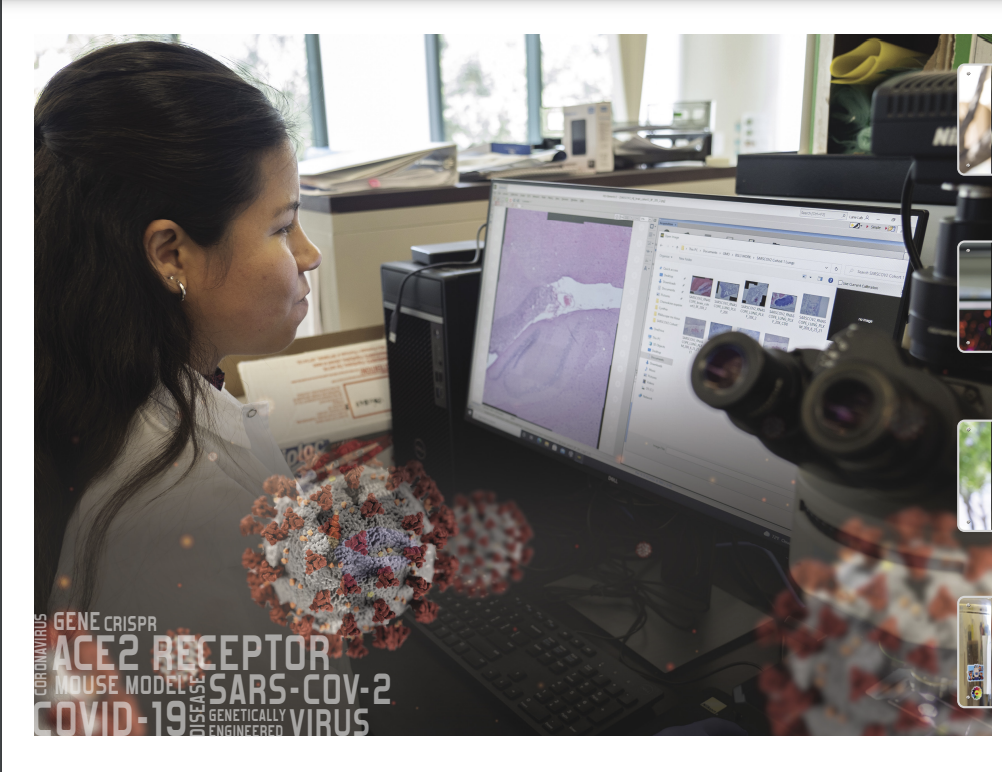
Nov 15, 2021
COVID-19 has profoundly affected humanity both through its severe toll and its rapid spread. As it emerged,
researchers quickly began developing animal models to help uncover its mechanisms and fight the symptoms.
Scientists from the UC Irvine Charlie Dunlop School of Biological Sciences and the UCI School of Medicine are working together on
this effort, which is crucial to understand how SARS-CoV-2 causes COVID-19.
For over a century, the use of animal models has led to signi!cant advances in our understanding and treatment of human
disease. Many animal species share a remarkable similarity to humans, making them suitable for studying a wide range of
pathologies. The models can help scientists understand the processes that cause disease and develop treatments.
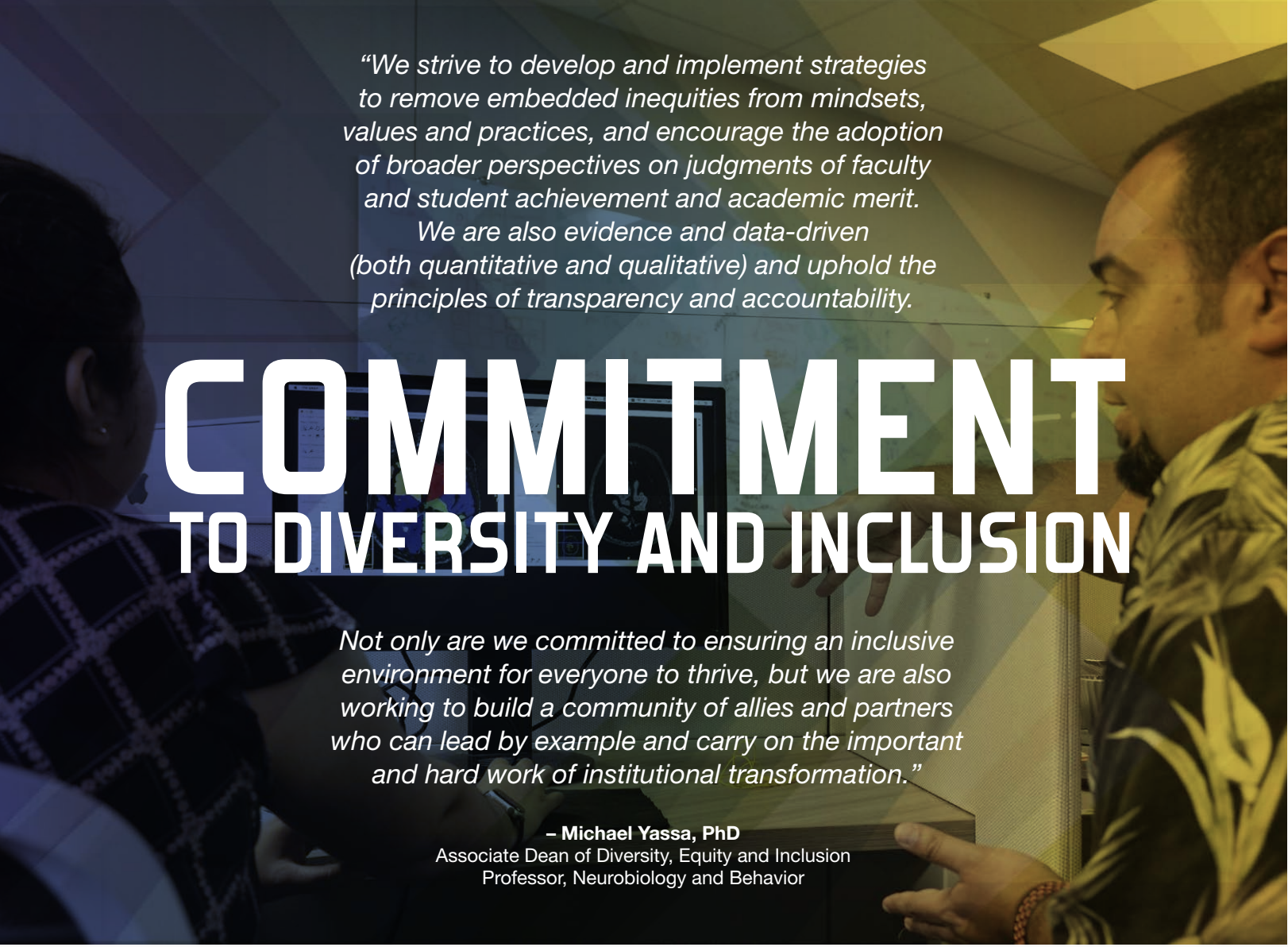
Nov 10, 2021
COVID-19 and the surge in demand for social justice were wake-up calls for
institutions, ones that have forever defined 2020 in the collective psyche.
The School of Biological Sciences was already well-armed to help combat the
pandemic through research underway and new inquiries rapidly initiated.
To address the growing call for social reform, Dunlop School decided to develop a
comprehensive approach to improving institutional policies and practices. In
October 2020, the school established the Office of Diversity, Equity and Inclusion,
or ODEI, headed by a new associate dean dedicated to this crucial issue.